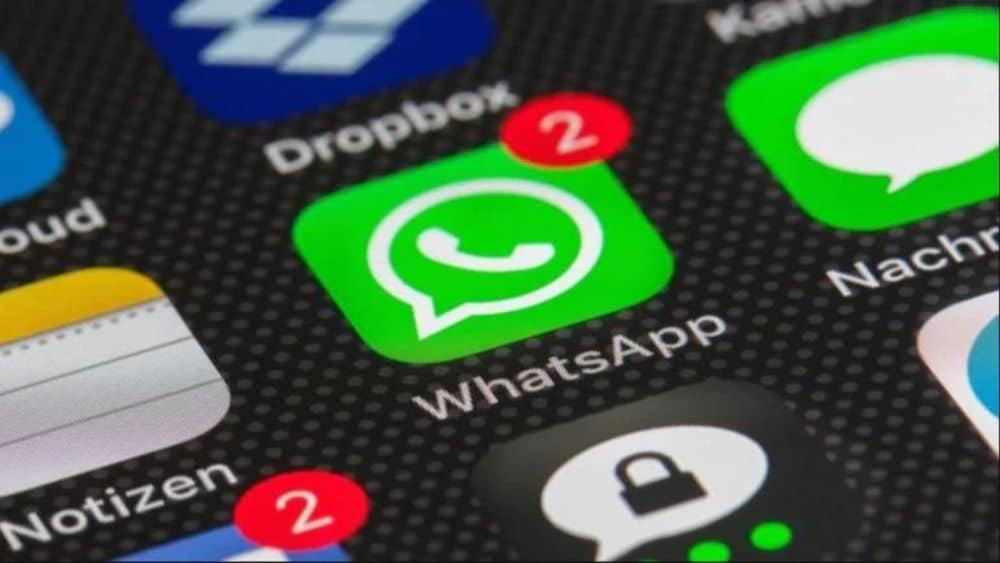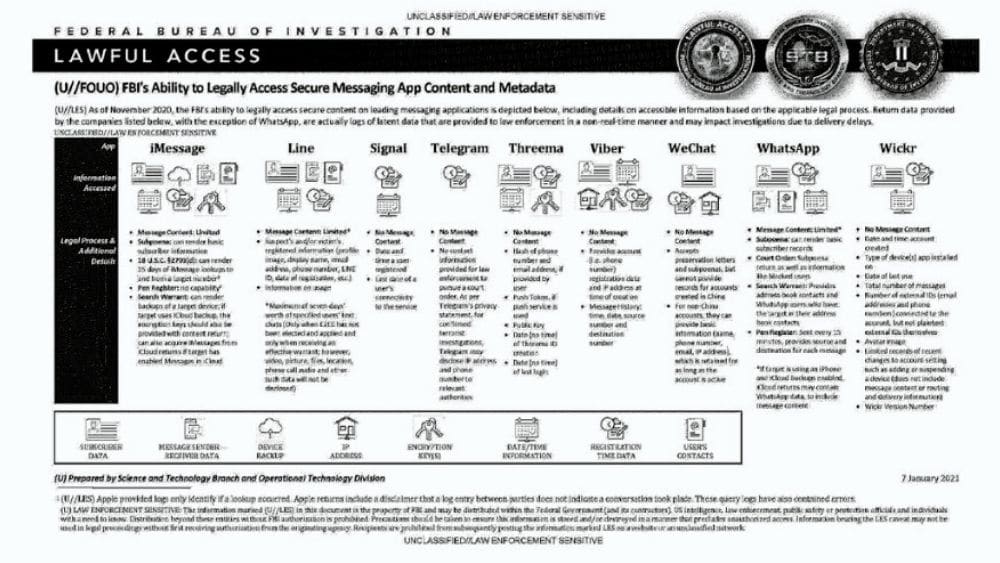A document obtained by Rolling Stone magazine and Property of the People reveals the extent of data collected by the Federal Bureau of Investigation (FBI) from instant messaging applications such as Meta’s WhatsApp and Apple’s iMessage.
This is an internal document titled “Lawful Access” which was curated by the FBI’s Science and Technology Branch and Operational Technology Division in early January 2021. It states the extent of data that the bureau can request of individuals from nine different companies: Apple’s iMessage, Line, Signal, Telegram, Threema, Viber, Tencent’s WeChat, Meta’s WhatsApp, and Wickr.
WhatsApp, iMessage, and Line all provide ‘limited’ access to message content if a legal request is made. While the rest of the companies do not disclose any message content to the FBI.
The document claims that it is particularly easy to harvest data from WhatsApp, given that the Bureau acquires a subpoena or a warrant.
Commenting on the document and pointing towards WhatsApp, Mallory Knodel CTO at the Center for Democracy and Technology observes that “the most popularly encrypted messaging applications” also happen to be the “most permissive,” as Facebook has made numerous statements regarding safeguarding the privacy of its users.
Meta’s WhatsApp claims to provide “basic subscriber records” with a subpoena. With a subpoena or a search warrant, the FBI can access address book contacts and any WhatsApp users that are added to a target’s address book. They can also view information such as users blocked by the target.
A surveillance request called a pen register will let WhatsApp update the FBI about the sender and the receiver of a particular message, every 15 minutes. This request will, however, not reveal the contents of the message but allow WhatsApp to provide real-time data about a user’s messaging habits.
On the plus side, there are companies such as Telegram and Signal that place great limitations on the amount of data and information that can be obtained by the FBI.
According to the document, Telegram, Signal, Viber, etc. do not provide the Bureau with any type of message content under any condition. However, Telegram may disclose the IP addresses, phone numbers of a user. While, Signal and Viber may share the date, time a user registered, last date of a user’s connectivity to the service, etc.




























What about security status of whatsapp in Pakistan?